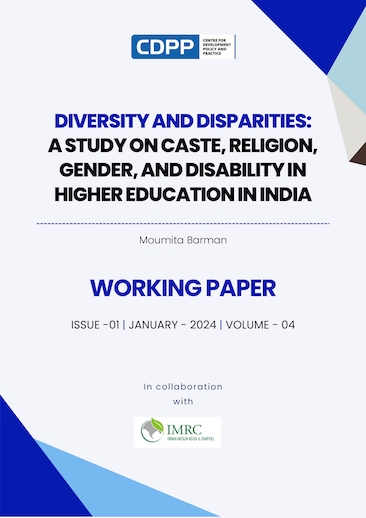
Higher education plays a pivotal role in shaping individuals and societies. However, barriers such as socio-economic disparities, and discrimination based on identity factors like religion, caste, gender, and disability hinder inclusivity. These obstacles prevent equal access to opportunities, limiting the diverse representation crucial for a comprehensive and enriched educational environment. This working paper explores how different factors like religion, caste, gender, and disability affect access to quality higher education in India. It looks at these inequalities closely using existing secondary research to understand their impact on educational opportunities. Additionally, the paper proposes an inclusive policy framework rooted in an intersectional approach. By suggesting this approach, the paper aims to shed light on these inequalities and promote an inclusive policy framework for higher education.
Higher Education, Religion, Caste, Gender, Transgender Community, Disability, Intersectionality
